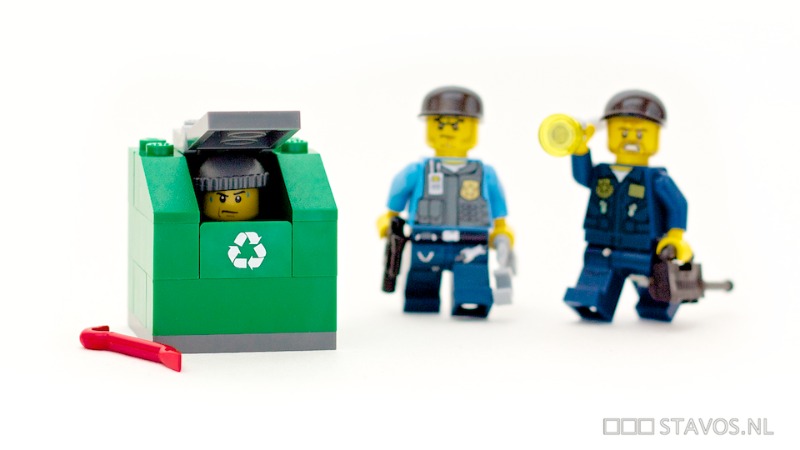Waste Management Regulations are the requirements which implement waste management laws. Some apply to citizens personally, and others to businesses, some apply to both businesses and all citizens (individuals). For example, we all have a personal responsibility to comply with laws which forbid littering, and this applies to businesses as well.
Waste Management Law

Wikipedia contains an excellent definition of Waste Management Law as follows:
Waste management laws govern the transport, treatment, storage, and disposal of all manner of waste, including municipal solid waste, hazardous waste, and nuclear waste, among many other types.
Waste laws are generally designed to minimize or eliminate the uncontrolled dispersal of waste materials into the environment in a manner that may cause ecological or biological harm, and include laws designed to reduce the generation of waste and promote or mandate waste recycling.
Regulatory efforts [the “Waste Regulations” – in Europe] include identifying and categorizing waste types and mandating transport, treatment, storage, and disposal practices.
Determination of whether a material constitutes a particular waste type may govern the manner in which the material must be handled from that point forward.
Many other wastes may have their own individual definitions and unique handling requirements.
via en.wikipedia.org
Waste Regulations at a Personal Level
Apart from society requiring everyone not to drop litter, for the avoidance of the spread of disease, and the chance of good health for all, there are other responsibilities (Waste Regulations) we must all comply with.
In the UK, for example, there are regulations to ensure everyone takes responsibility for ensuring those that take waste away form our homes, and businesses etc., do not simply drive down to the nearest lay-by on a quiet road, and “fly-tip” our rubbish.
Your responsibilities to Comply with the Waste Management Regulations
All UK citizens and businesses including waste management companies must:
- keep waste to a minimum by doing everything you reasonably can to prevent, reuse, recycle or recover waste (in that order)
- sort and store waste safely and securely
- must complete a waste transfer note for each load of waste that leaves their premises, or ensure that a responsible person does this, within any client sub-contracting legal relationship, for example
- individuals hiring a skip operator to take away any waste (household, home renovation derived, demolition, or garden etc) must check that the skip operator, or any other person/contractor removing waste from their premises is a bona-fide IPPC Regulations permitted (licensed) company or individual
- check if your waste carrier is registered to dispose of waste, and not allow the waste carrier to dispose of their waste illegally.
You have extra responsibilities if you’re dealing with hazardous waste. For more information generally on this, visit: environment.data.gov.uk
Verifying a Waste Carrier
Checking that the Waste Licence Number a waste carrier supplies is simple.
Go to the EA website here, to verify the existence of a suitable permit and enter the business name or registration number.
This number should be provided by the skip (or other) waste contracting company. Use the Quick Check box at the top of that page, enter the registration details. Press the “Look Up” button and if the waste carrier is properly registered you will receive confirmation in a matter of moments.
Waste Regulations for Commercial Trade
The Waste Regulations start by defining what a waste is. It is surprising that this is needed you might say, isn't that obvious?
Well, while the average person may consider they know what is waste is, it has been getting more difficult year by year to determine what is waste.
Firstly, criminals would love it if they could accept waste and call it anything but waste, because then they could pollute their locality badly, make a tn of money, and in many instances escape punishment.
Second, as recycling technology has progressed there are many example of materials previously considered to be waste which can now be sold for a profit, and should be removed from any definition of waste. An example of that is demolition concrete, and also road surfacing which can now with current technology be crushed, sorted by size of aggregate and re-used.
The Waste Catalogue of Waste Types
Determination of whether a material constitutes a particular waste type governs the manner in which the material must be handled from that point forward, relies on waste type categorisation.
Governments such as the UK government have described all the many types of waste and given them a catalogue number. By looking up the catalogue number you can find whether that waste is hazardous or non-hazardous and find out any special requirements for its disposal to landfill or for treatment.
Some wastes such as nuclear waste are banned from all normally licensed waste disposal facilities.
Others, such as those known as hazardous wastes can only be disposed of to specially permitted hazardous waste landfills or waste treatment centres. Such facilities apply for and are granted waste licences to operate, but must comply with their licence conditions in order to operate their sites/ facilities.
Many wastes have their own individual definitions and unique handling requirements.
All these things are governed by Waste Regulations which apply to all businesses.
The waste regulations enforce disposal standards and govern the acceptability of some wastes to enter certain waste streams.
The Waste Regs. define method, and location of disposal of any particular waste. Such standards may be designed to protect human health and comfort, and environmental values. A variety of methods exist to control disposal.
Purpose of the Waste Regulations in Making Society More Sustainable through Waste Prevention to Recycling
Waste prevention, or “source reduction,” means consuming and discarding less, is a successful method of reducing waste generation. Backyard composting, double sided copying of papers, purchasing durable, long- lasting environmentally friendly goods; products and packaging that are free of toxics, redesigning products to use less raw material production and transport packaging reduction by industries are the normal practices used and have yielded substantial environmental benefits.
Source reduction prevents emissions of many greenhouse gases, reduces pollutants the need saves energy, conserves resources, and reduces wastes for new landfills and combustors. It reduces the generation of waste and is generally preferred method of waste management that goes a long way toward saving the environment.
Reuse is the process, which involves reusing items by repairing them, donating them to charity and community groups, or selling them. Reusing products is an alternative to recycling because the item does not need to be reprocessed for its use again. Using durable glassware, steel using cloth napkins or towels, reusing bottles, reusing boxes, purchasing refillable pens and pencils are suggested.
The process of recycling, including composting, has diverted several million tons of material away from disposal. Recycled materials include batteries, recycled at a rate of 93%, paper and paperboard at 48%, and yard trimmings at 56%. These materials and others may be recycled through drop off centers, buy-back programs, and deposit systems.
Recycling prevents the emission of many greenhouse gases that affect global climate, water pollutants, saves energy, supplies valuable raw materials to industry, creates jobs, stimulates the development of greener technologies, conserves resources for our children’s future, and reduces the need for new landfills and combustors. via yourarticlelibrary.com
Check our article about the benefits of the Waste Management Plan, plus what it is etc.

